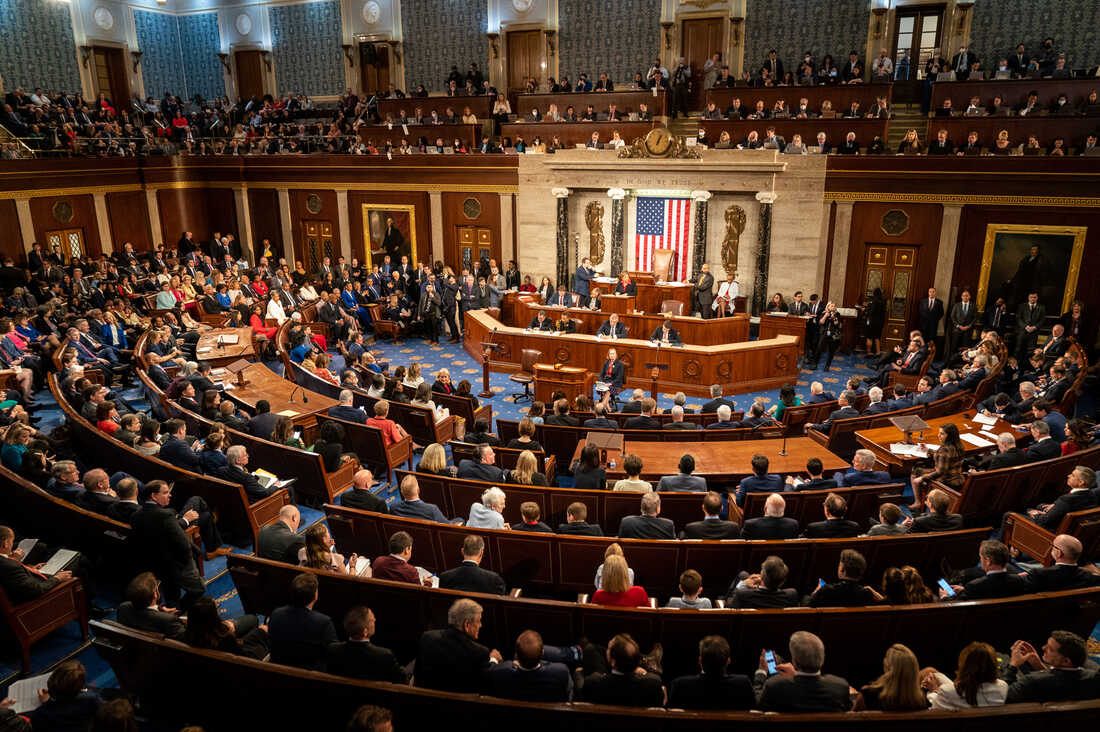While intensive efforts remain underway to secure the release of hostages and extend the temporary ceasefire in Gaza, Congress is set to unravel a prior diplomatic agreement that secured the freedom of Americans held by Iran. At a time when the U.S. is engaging in high stakes and complex diplomatic undertakings across the region, some in Congress are seeking to insert themselves as spoilers to undercut U.S. diplomacy and provoke mistrust with regional actors like Qatar who have been essential to securing the release of hostages. But rational policymaking is increasingly scarce in Washington, as many lawmakers have resorted to bluster and saber rattling against Iran in the wake of the October 7th attacks.
The bill, H.R. 5961, the so-called ‘‘No Funds for Iranian Terrorism Act,” would force the U.S. to renege on the September prisoner swap deal with Iran by barring Iranian funds held abroad from being used to make humanitarian purchases for food and medicine. It is expected to receive a vote on the House floor on Thursday.
In September, the U.S. successfully-completed a prisoner swap deal with Iran to free five Iranian-American hostages, including individuals who had been held in Evin Prison for many years. In return, the U.S. agreed to facilitate the transfer of Iranian assets held in South Korea to banks in Qatar where they were to be made available for U.S.-monitored purchases of food and medicine. Far from a concession by the U.S., the agreement was in keeping with longstanding U.S. policy and law that exempts food and medicine purchases from sanctions. Under the terms of the agreement, the U.S. maintains strict oversight of the Iranian funds now held in Qatar. The Biden Administration placed an informal hold on these funds in the immediate aftermath of the October 7th attack, which U.S. intelligence and other sources ultimately assessed was launched by Hamas alone without the foreknowledge of Iran or other actors.
But now, instead of following the facts, the House is exploiting the tense environment to cancel that agreement to score political points and undermine the Biden Administration’s diplomatic efforts in the region.
The stakes of this political theater are significant: if the U.S. again reneges on a deal with Iran and brokered with Qatar, it will make it infinitely harder to negotiate anything with Iran ever again and undermine our word with key interlocutors: on hostages, on preventing war, and on nuclear nonproliferation.
Of particular note is that this legislation seeks to impose restrictions on the purchase of purely humanitarian goods, reinforcing rising negative perceptions in the region and globally regarding the U.S. government’s position towards humanitarian suffering that has been exacerbated by the shocking death toll and depravity unfolding in Gaza. Iranians have long-suffered food and medicine shortages caused by sanctions that have imposed a de facto blockage on Iran’s economy, with recent estimates indicating shortages of over 170 essential medicines and over-inflated costs of basic foods.
When something as vital as medicine becomes increasingly scarce, ordinary Iranians are forced to turn to shadow economies to get their hands on the medications they need to survive. And inevitably, these sanctions-driven, underground economies become a hotbed for corrupt actors to profit off of the smuggling networks used to bring in medicine, leaving ordinary Iranians in an even more vulnerable position. The prisoner swap arrangement, however, was established to help close this gap between the real economy and the shadow economy, in addition to opening new diplomatic options for the U.S. to address security and nonproliferation challenges posed by Iran. Thus, to deny this fund is to not only continue depriving Iranians of their basic needs, but to re-escalate tensions at a time when the regional security situation has never been so fraught.
After several years of working to pull Iran closer and closer to the negotiating table to de-escalate tensions – especially following the detrimental impact of the Trump administration’s maximum pressure campaign – and finally succeeding in that endeavor, Congress threatens to send all this quite literally life-saving progress down the drain.
Unfortunately, rational policymaking on matters of war and peace might be too much to expect of hawks on Capitol Hill. Instead of threatening to keep ordinary Iranians in limbo under brutal sanctions, and at risk of wider war by undermining opportunities for diplomacy moving forward, Congress should set H.R. 5961 aside and instead join the growing number of Americans who reject a wider war in the Middle East. Only diplomacy has proven to succeed in addressing challenges to U.S. security presented by Iran. Particularly with the threat of a broad regional war looming, we can’t afford to tear down the diplomatic option.
Back to top